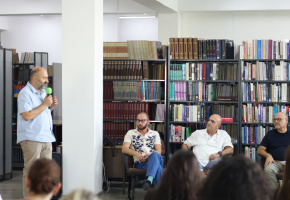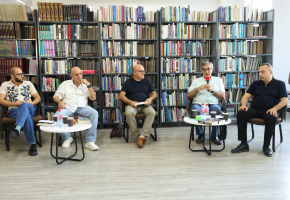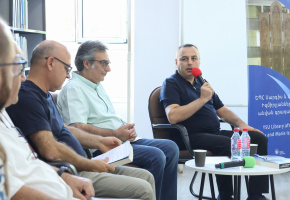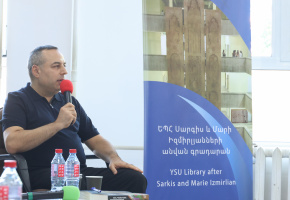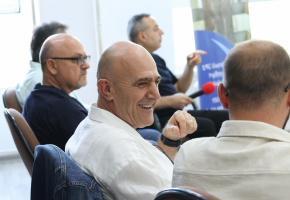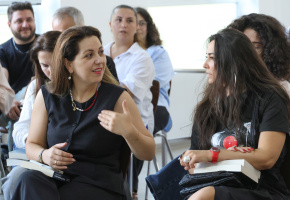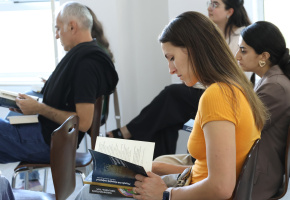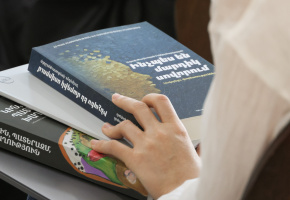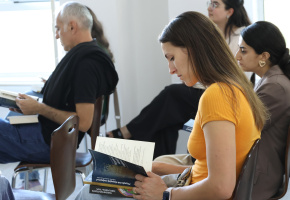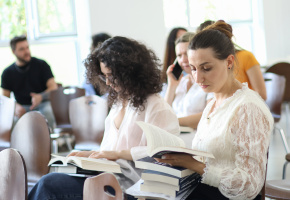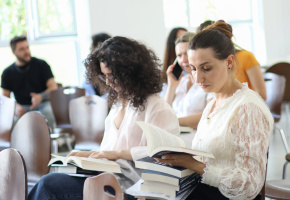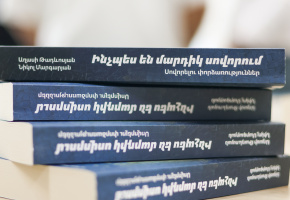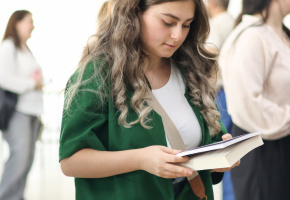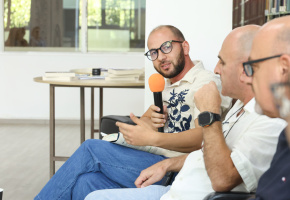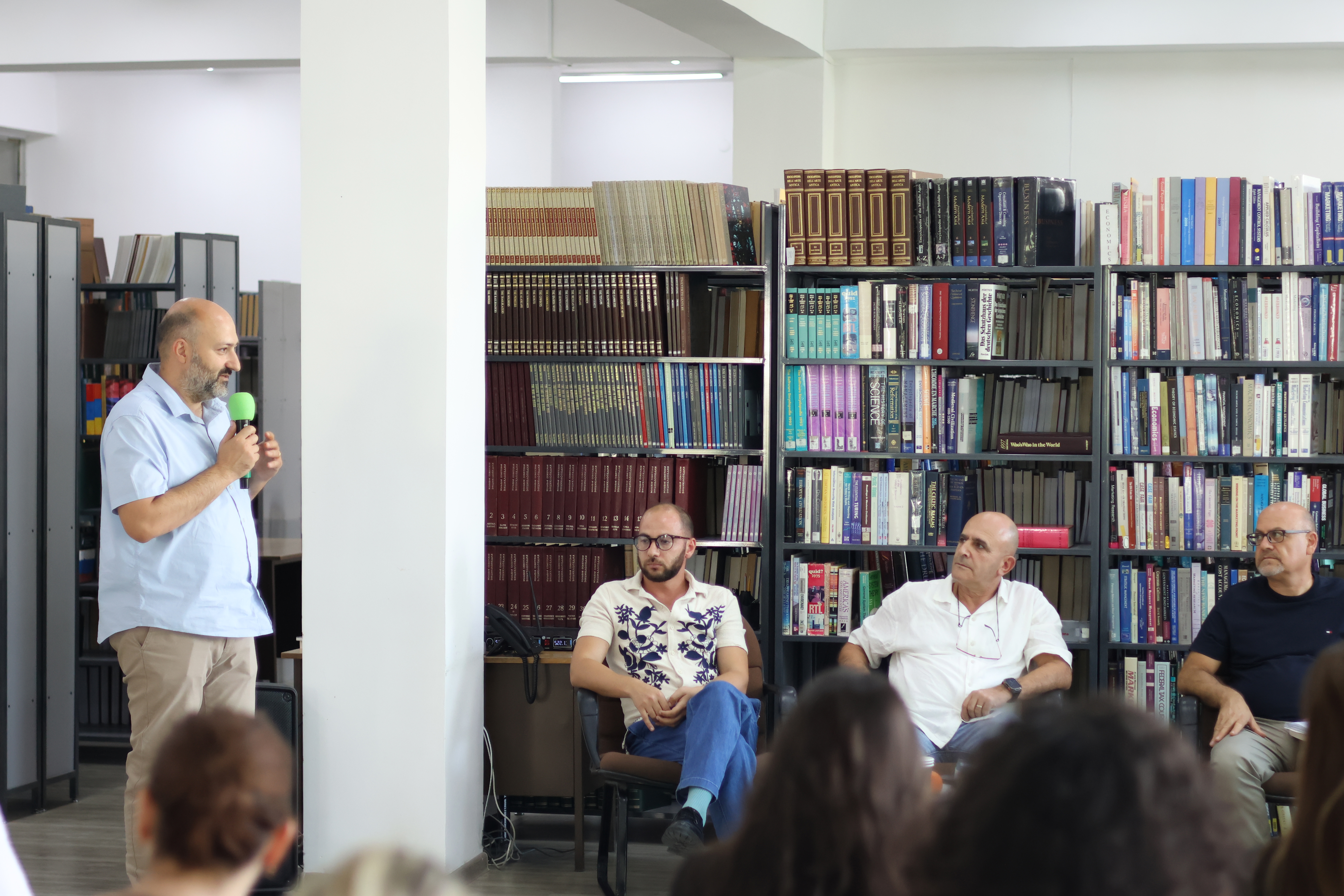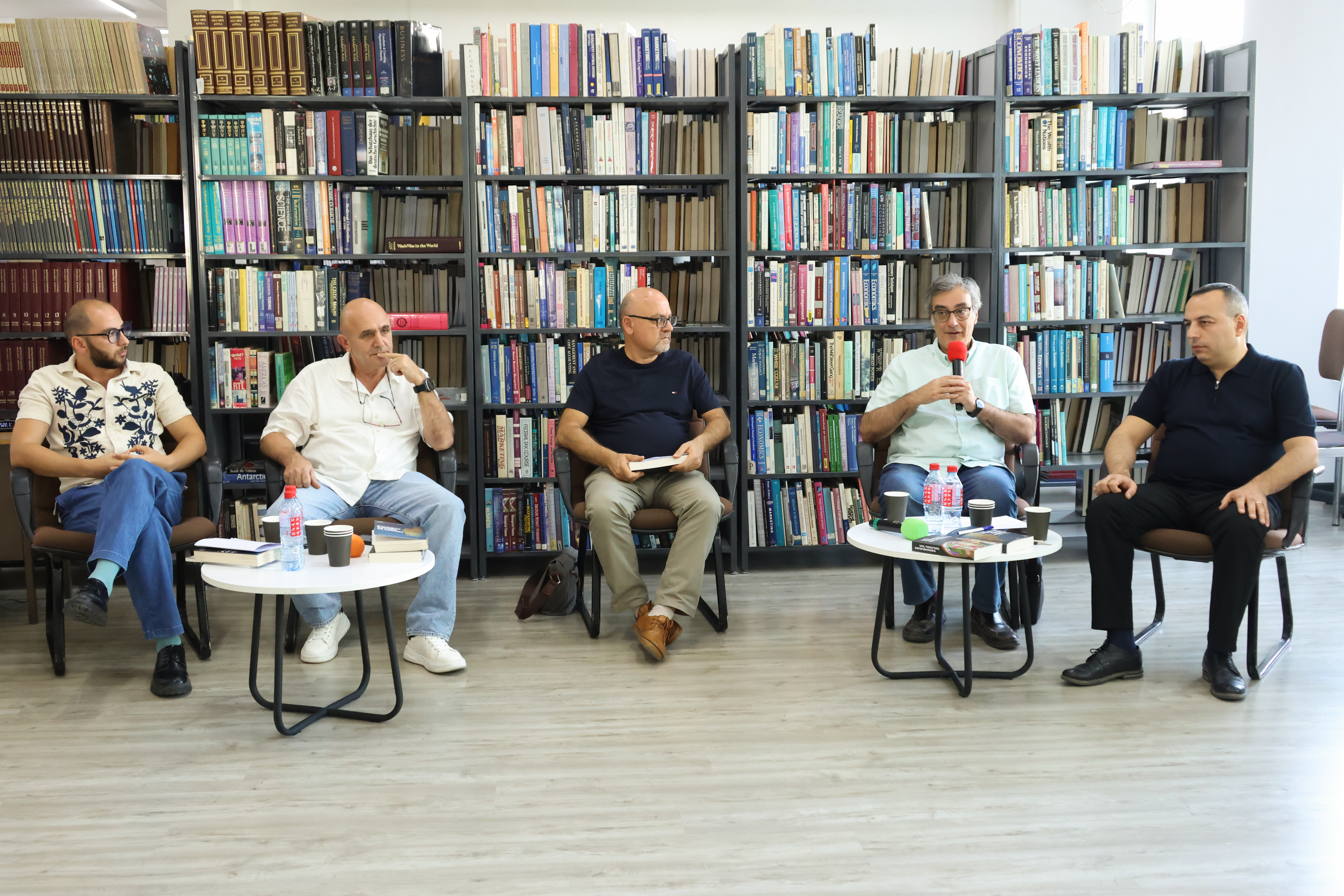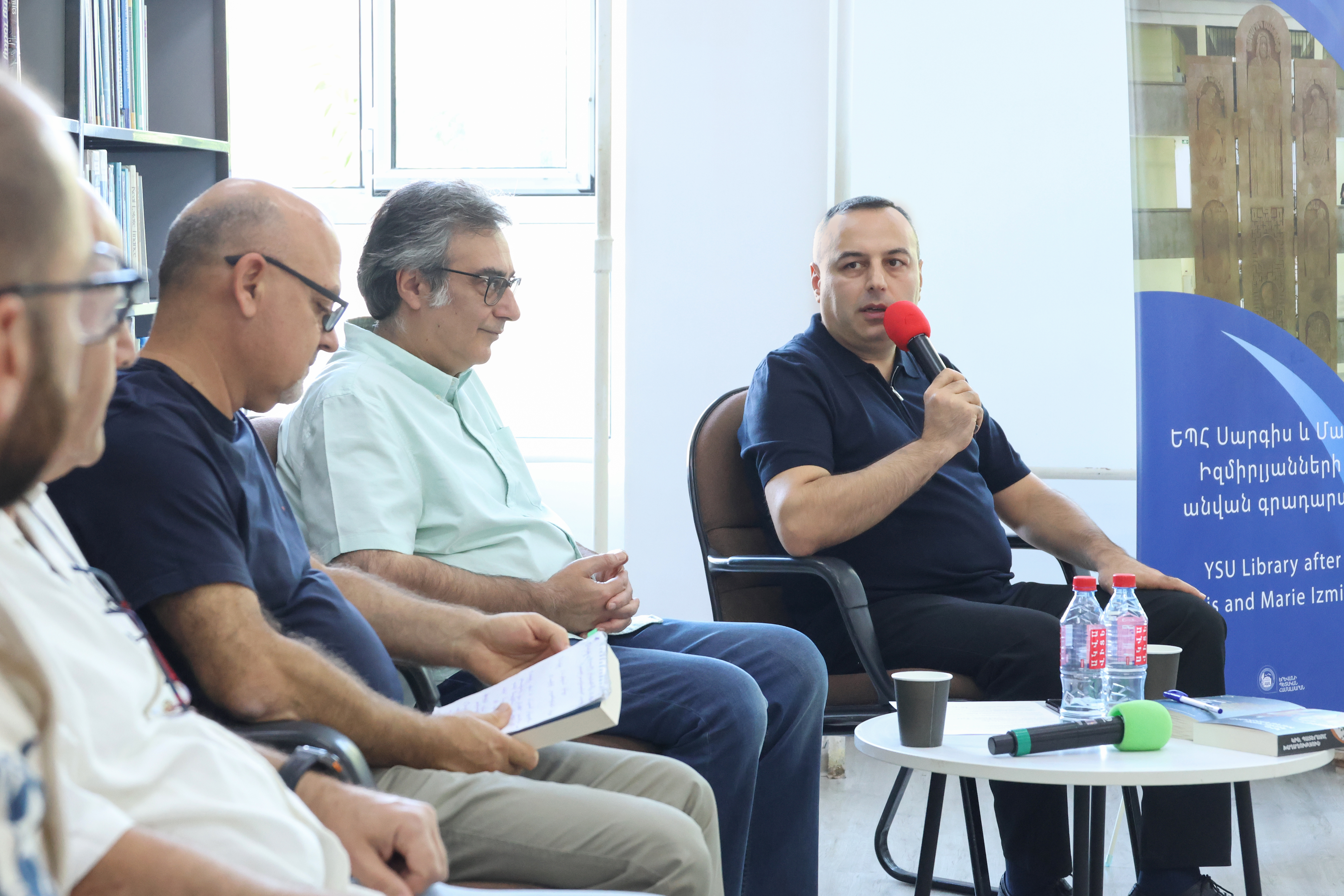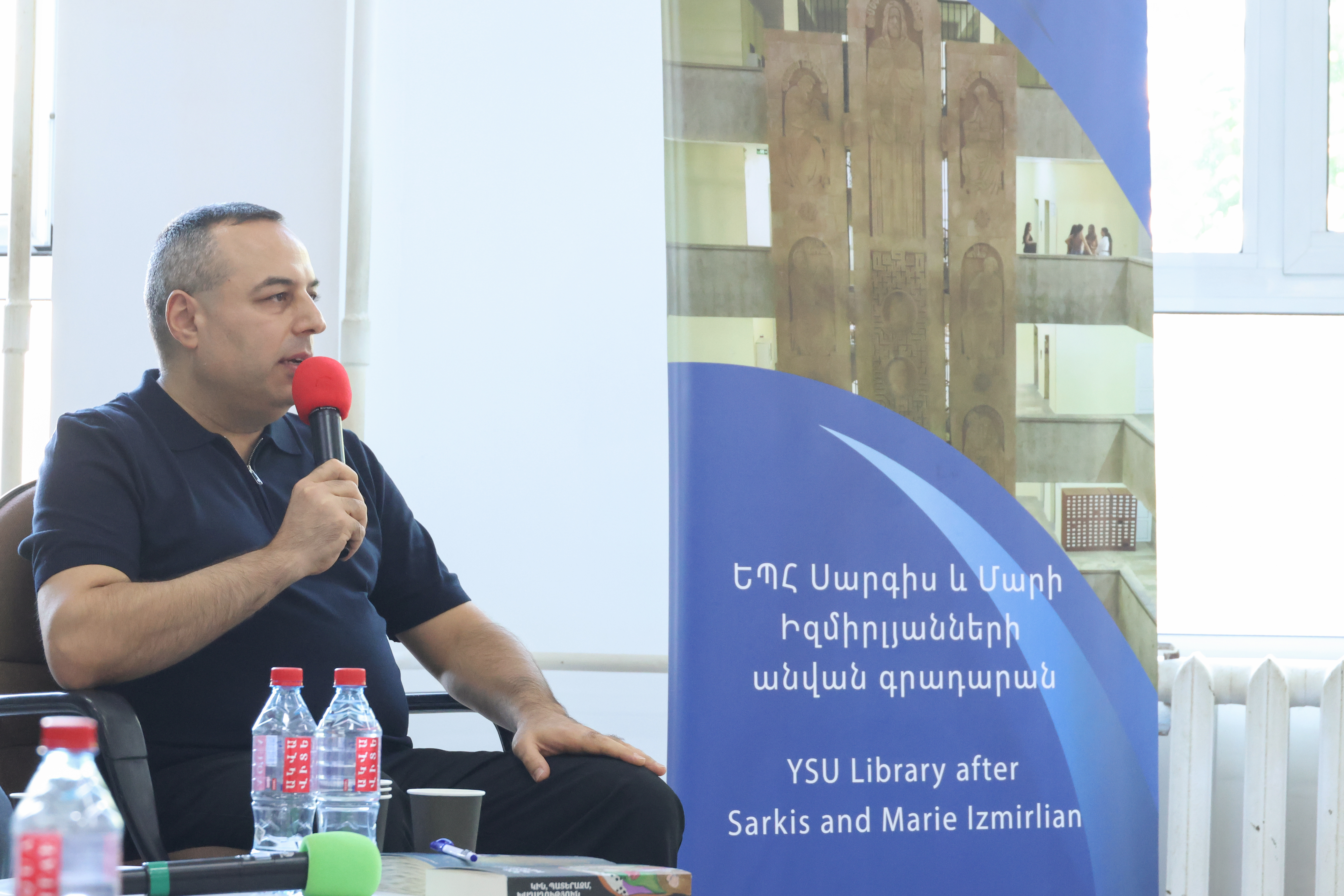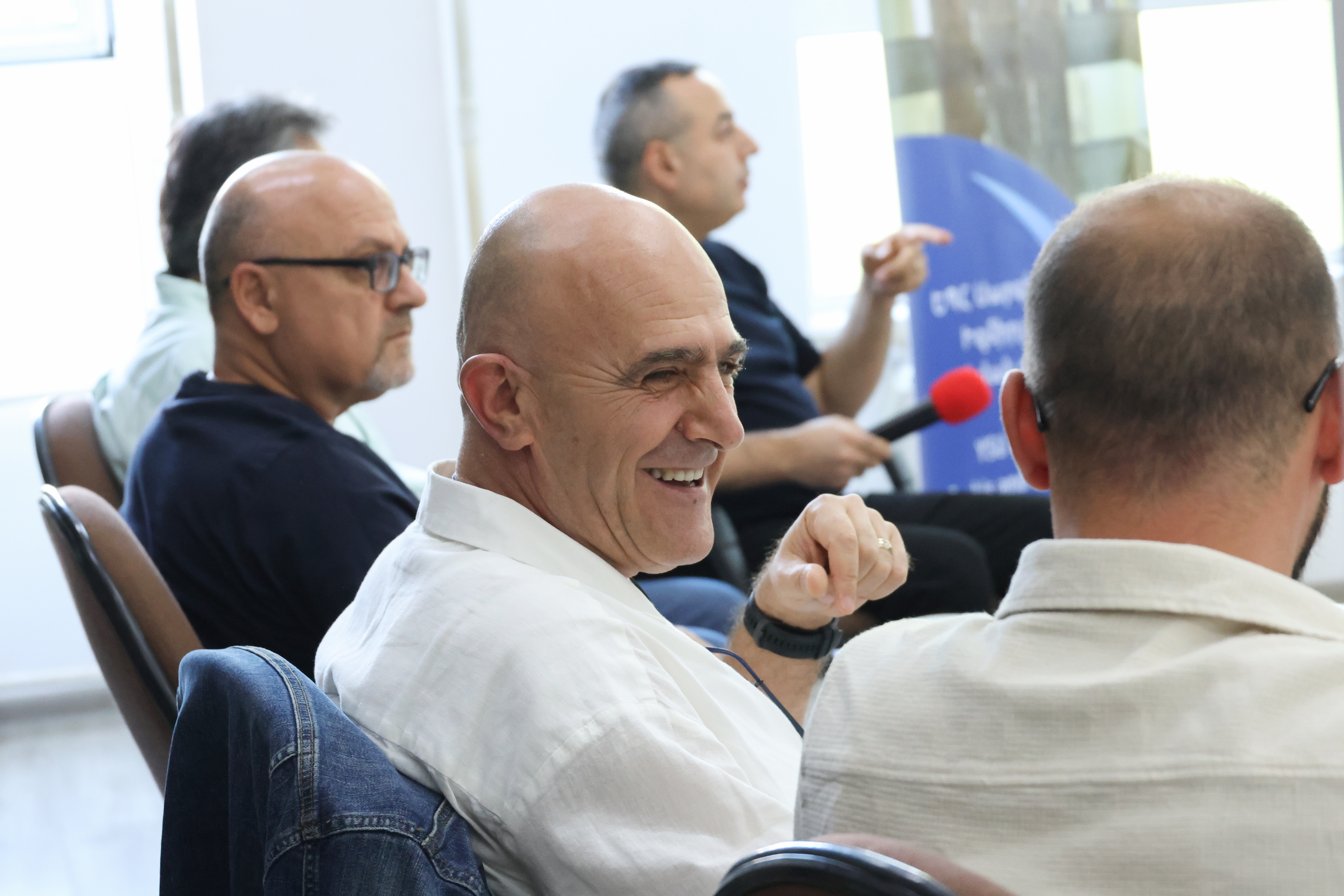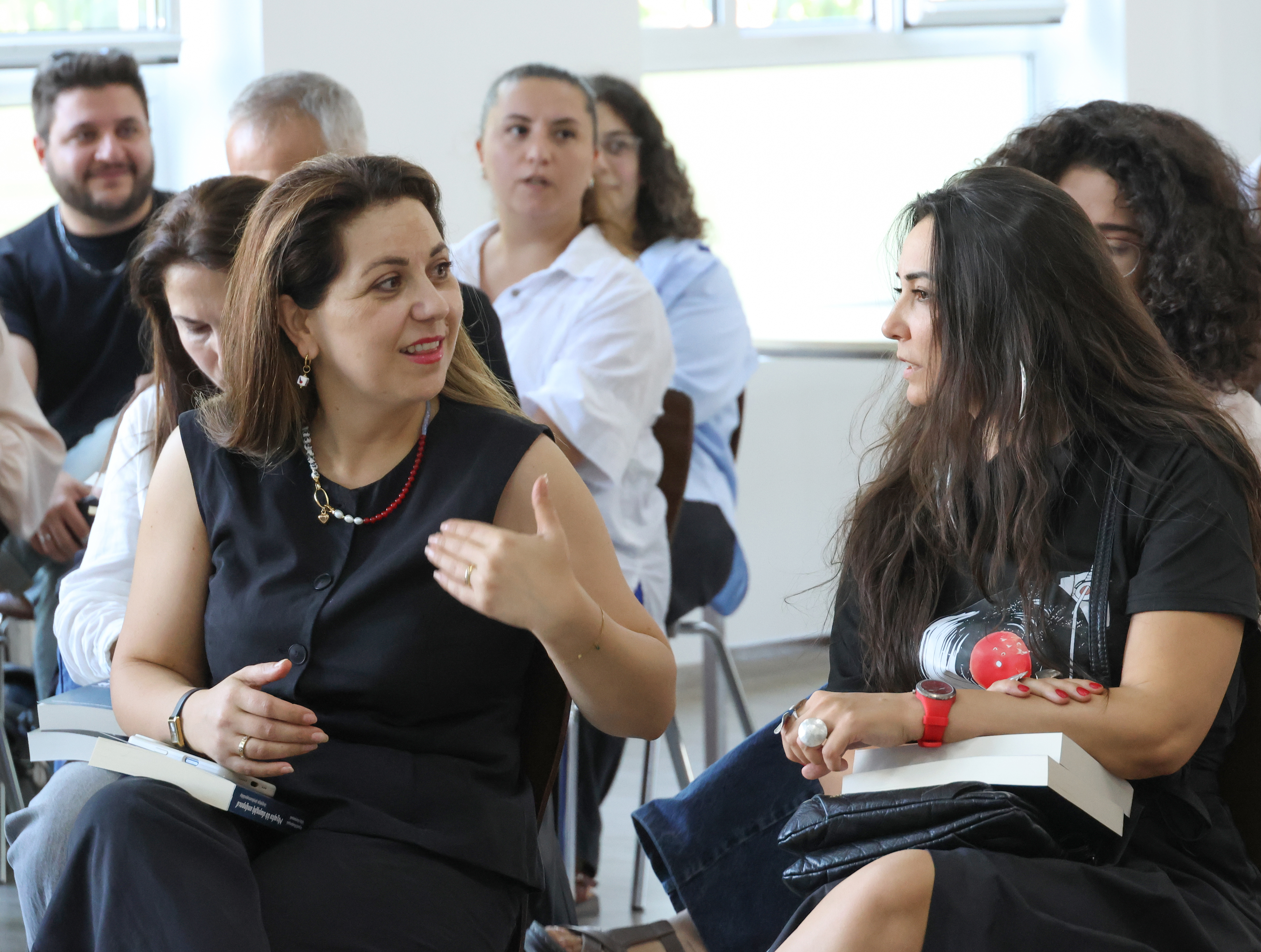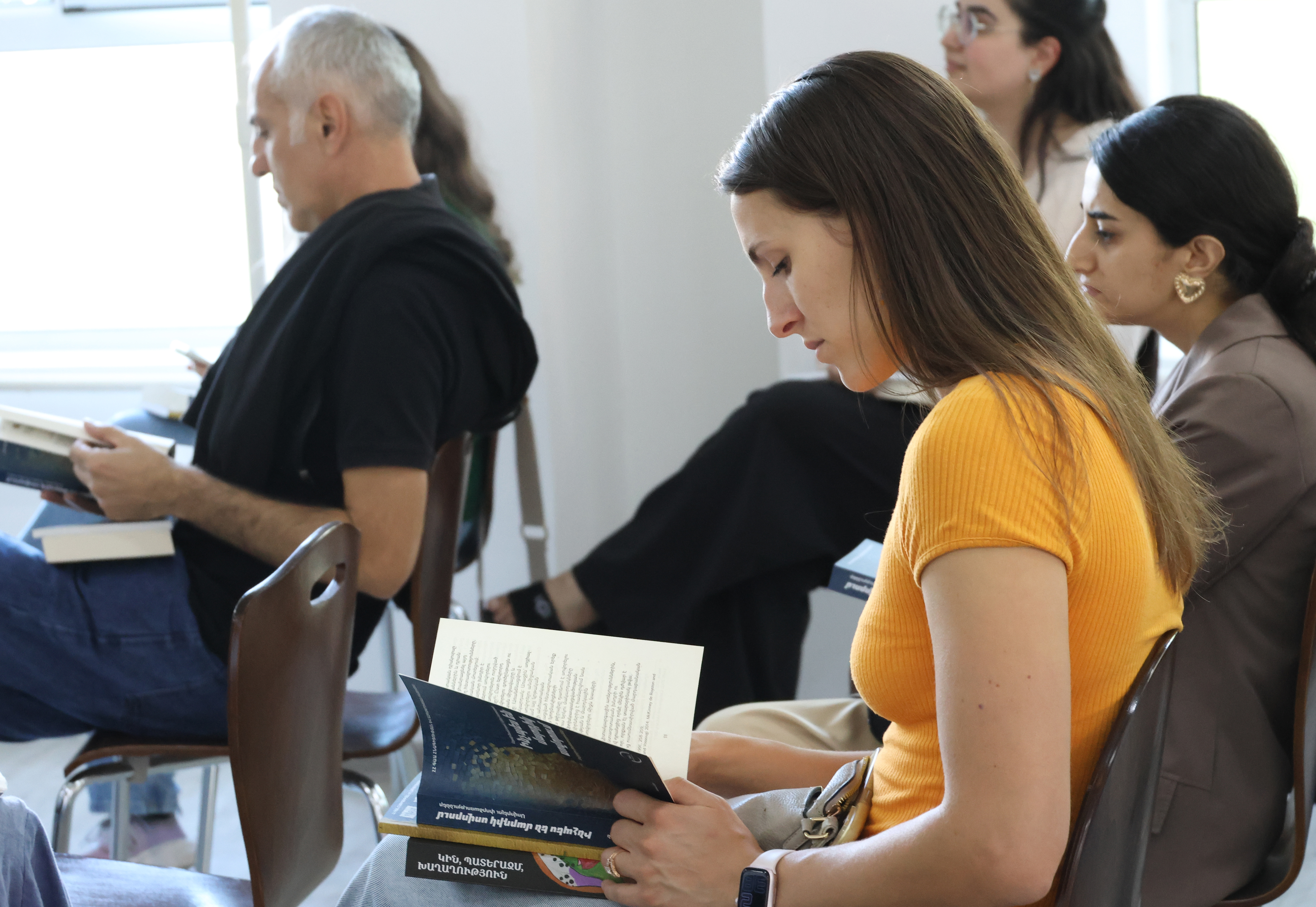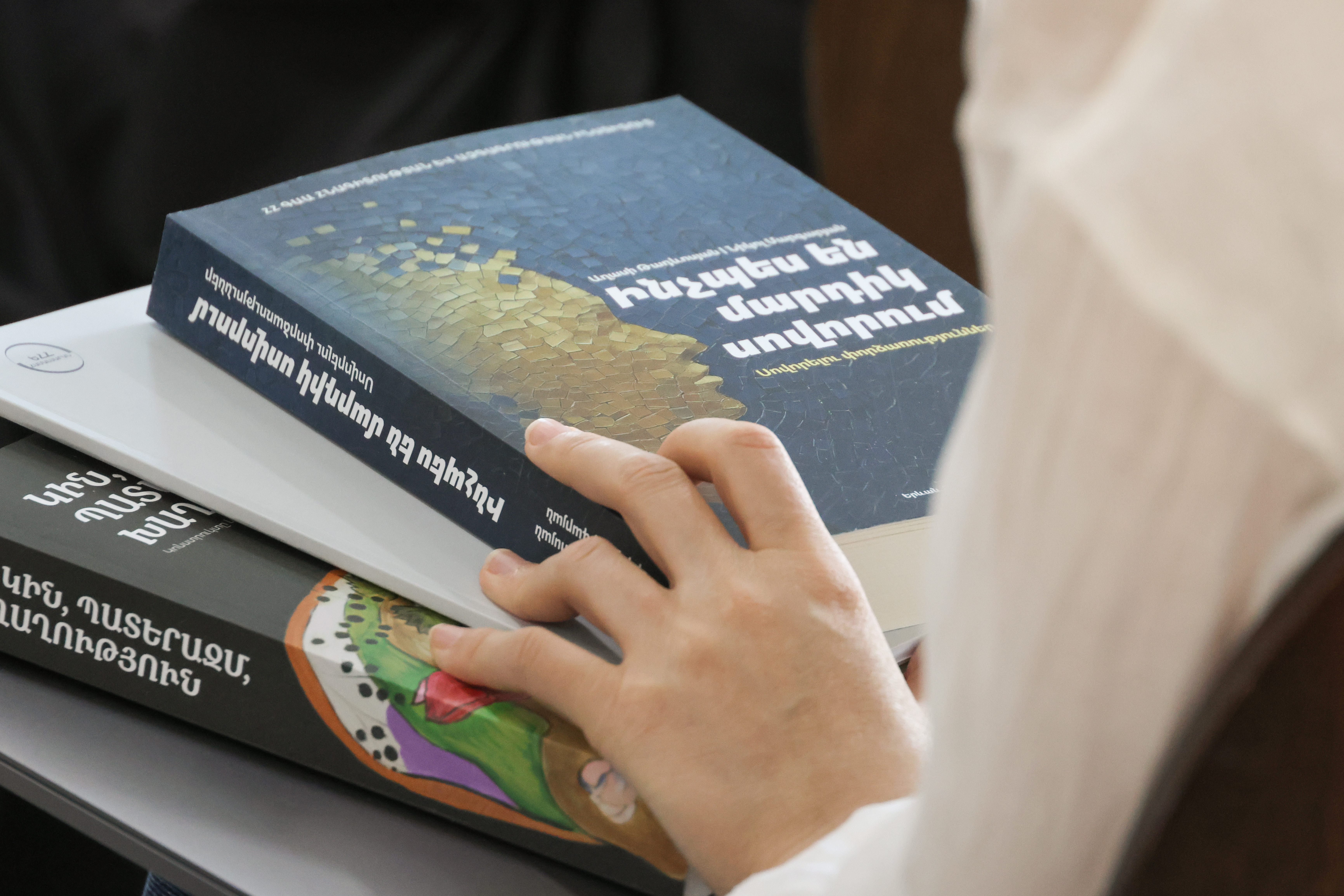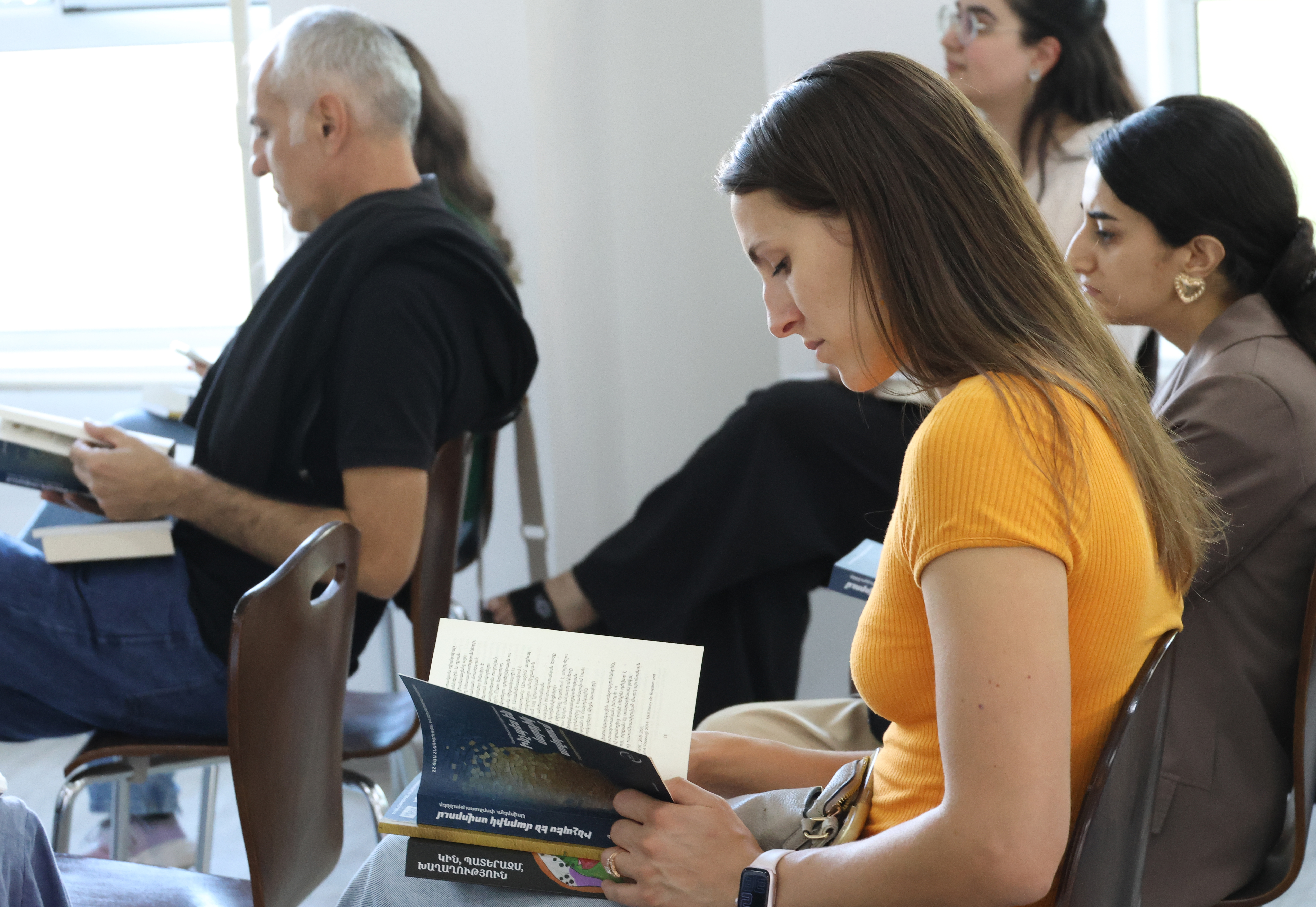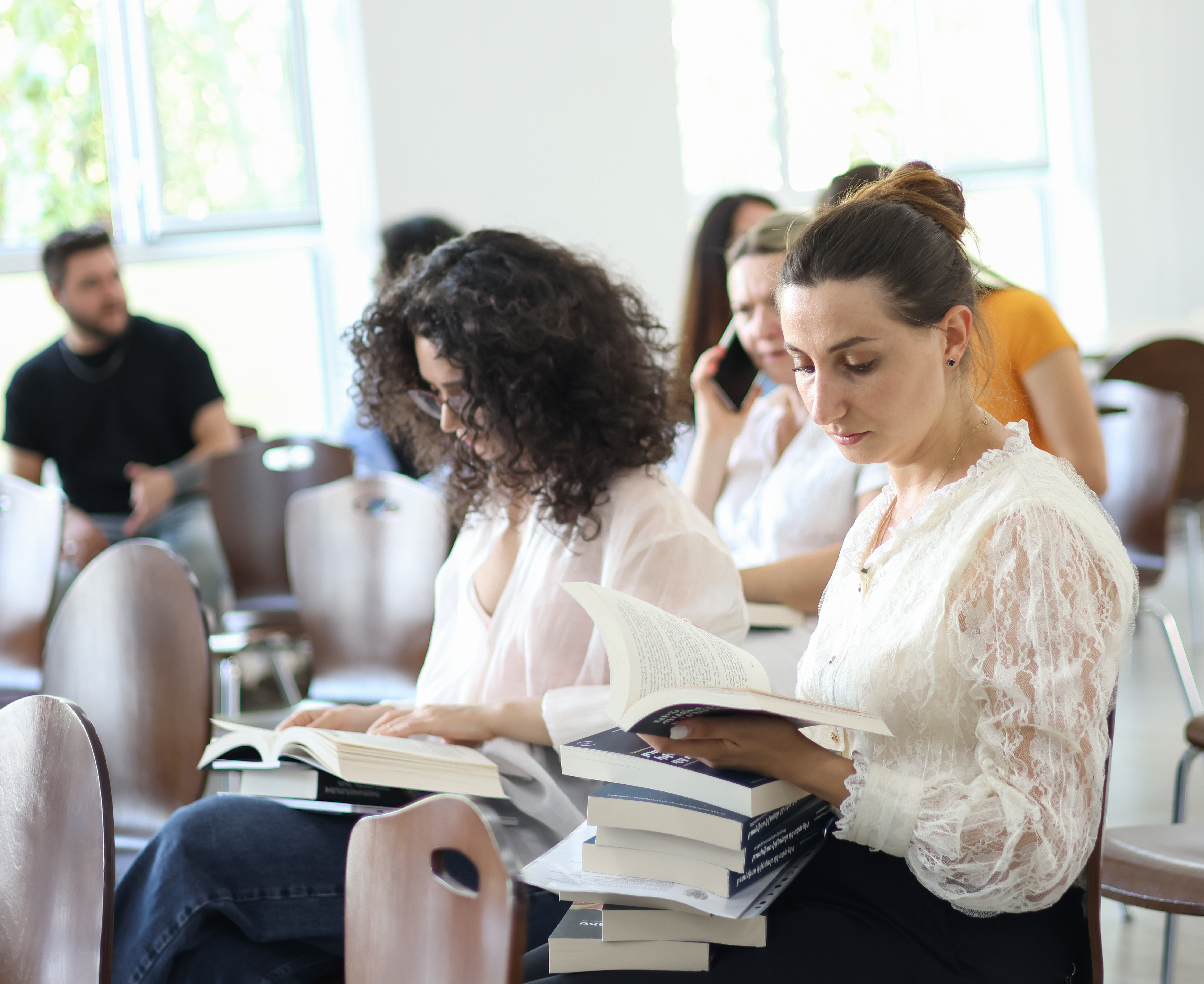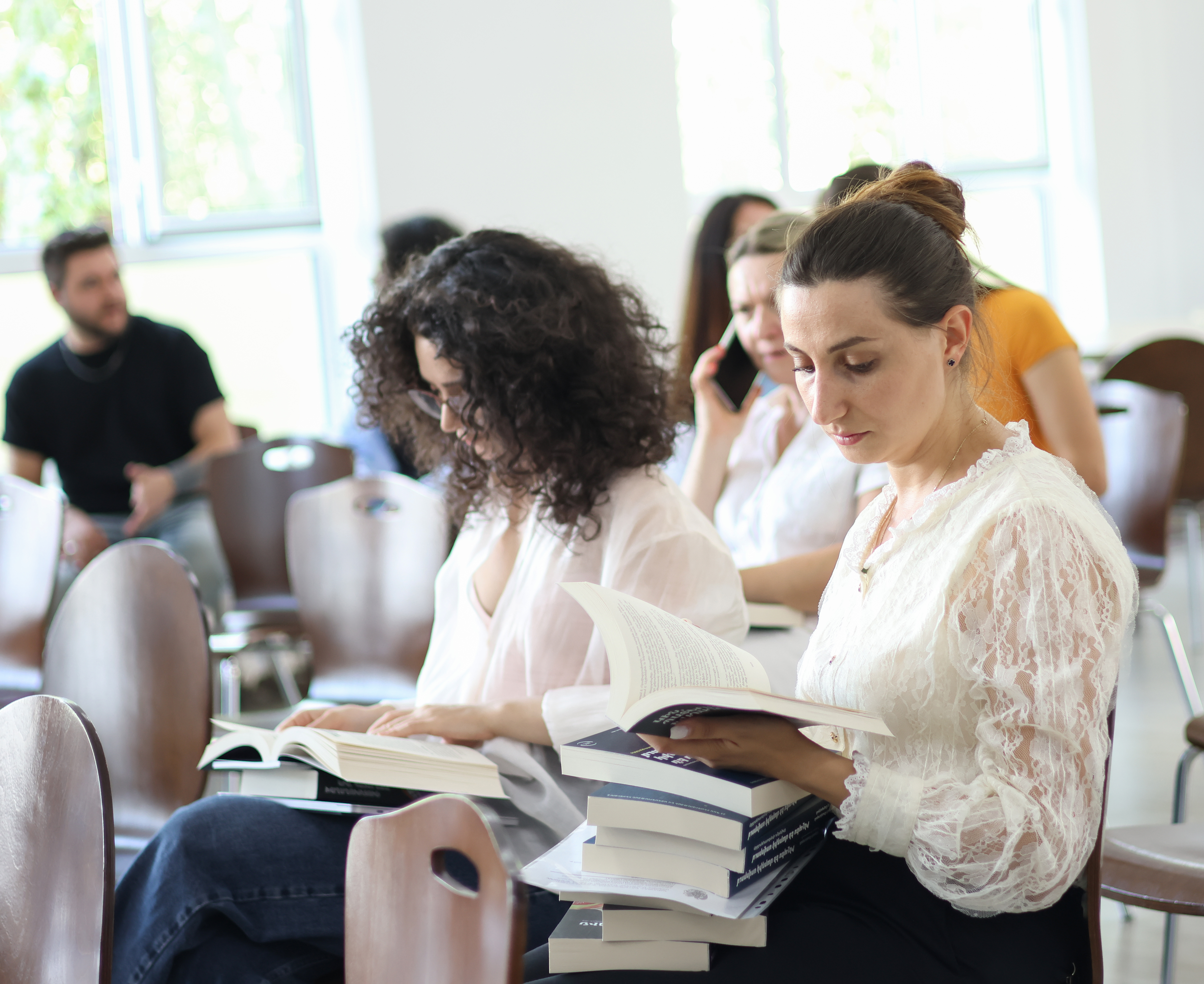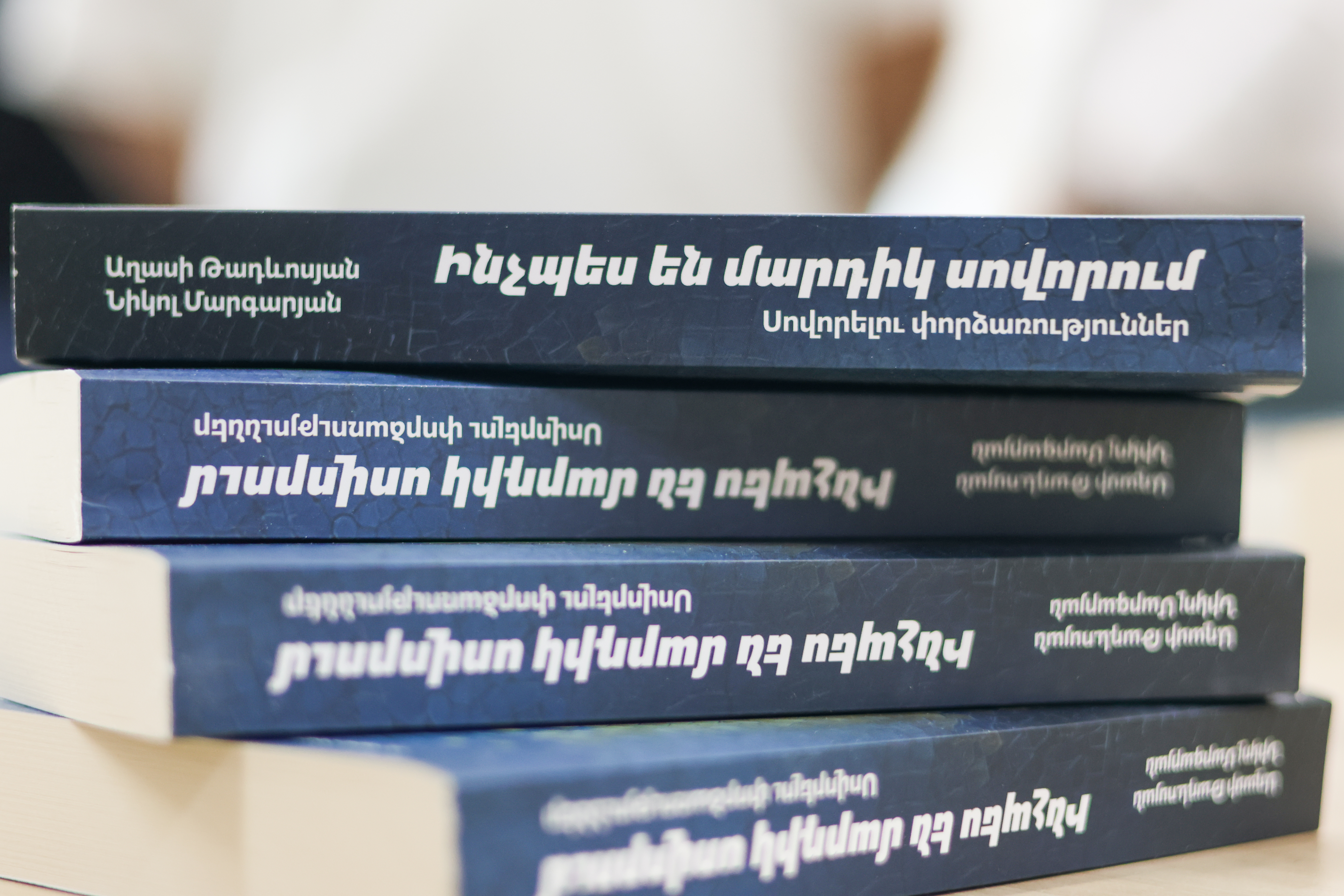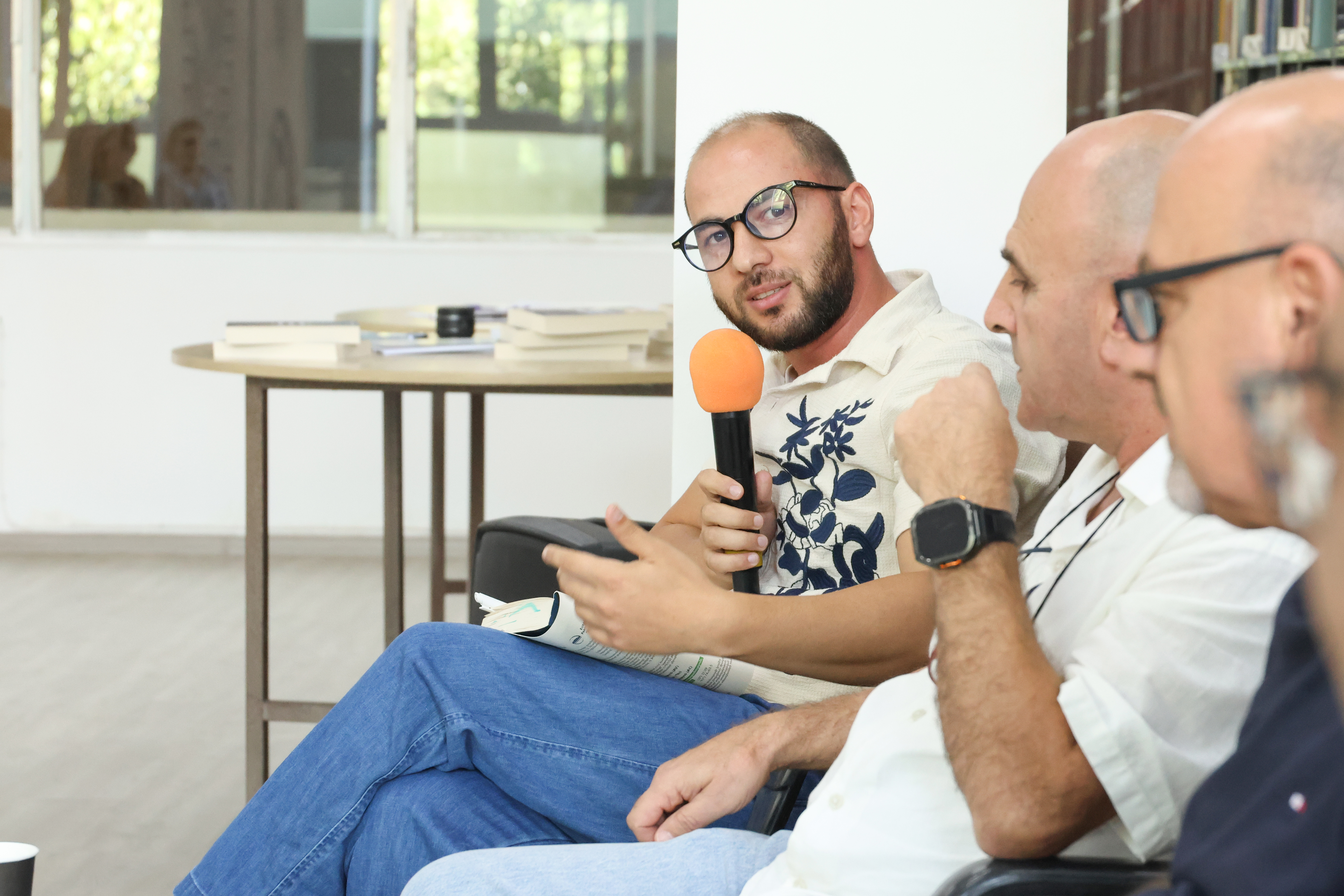September 12, 2025 | 16:31
Research
Publications and scientific journals
Presentation of "How People Learn: Learning Experiences" held at YSU
YSU Library named after Sarkis and Marie Izmirlyan hosted the presentation and discussion of the book "How People Learn: Learning Experiences", which focuses on successful learning experiences. The event was organized in cooperation with the Eurasia Cooperation Foundation (ECF).
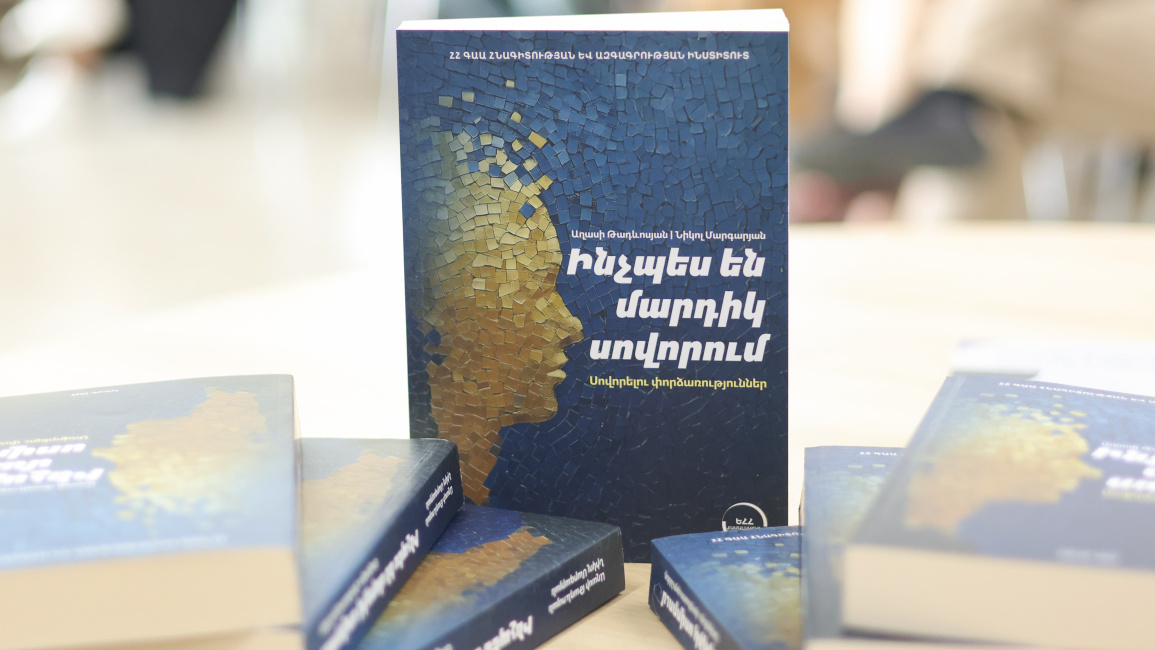
What is learning, why do people learn, what and how do they learn, what factors influence learning, and what role does the educator play? Answers to these and other questions can be found in "How People Learn: Learning Experiences".
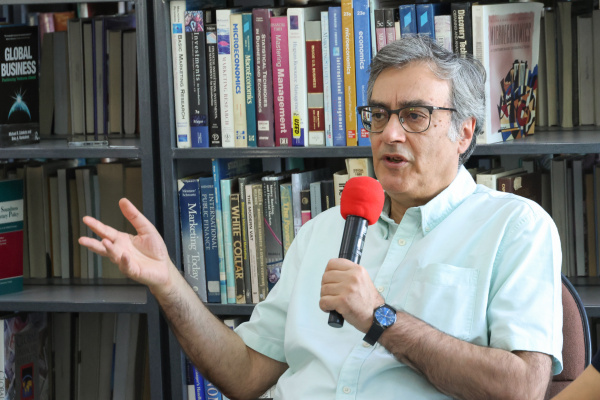
Gevorg Ter-Gabrielyan, editor of the book and General Director of ECF, noted that although the world tends to make everything a subject of education, discussions about learning often focus solely on the teacher’s perspective. This very aspect became the foundation for creating the book. He expressed gratitude to the Swedish government for supporting the research.
"The learner’s voice is absent in international scientific publications; therefore, the decision was made to conduct this research 'from the bottom up' and to present why and how educated individuals have learned," he emphasized.
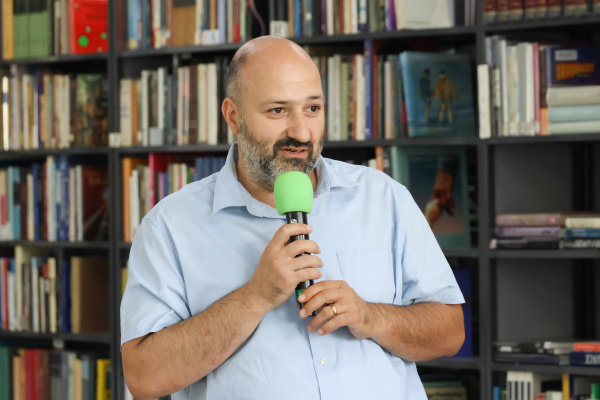
Mikayel Hovhannisyan, Vice-Rector for Development and Innovation at YSU, participated in the creation of the book. He stated that the creation of the book can be viewed in two ways: on one hand, it’s the authors’ research work, and on the other, it reflects the "line of thought" developed over years by the Eurasia Cooperation Foundation.
"The idea of learning methods has been constantly discussed within various ECF programs. Ultimately, the structure, concept, and implementation of this research work express the activities that ECF has been conducting for years. This represents a unique intellectual manifestation in Armenia, especially in the social sciences field. Therefore, steps should be taken to ensure the book is widely disseminated," he said.
The authors of the book, cultural anthropologists Aghasi Tadevosyan and Nikol Margaryan, interviewed 50 oral storytellers from various professions, ages, and occupations—successful individuals in their respective fields—who shared their personal learning experiences.
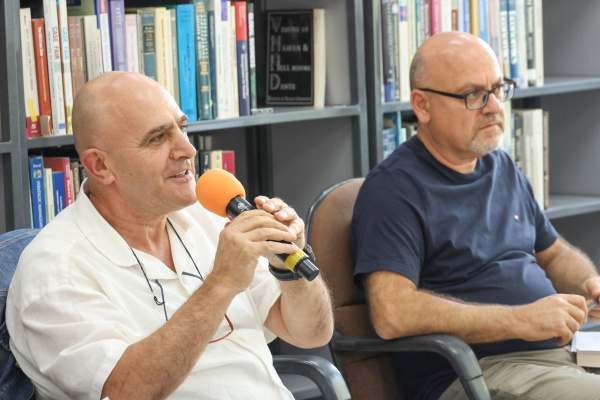
According to Nikol Margaryan, the entirety of the oral storytellers’ narratives—their language and style—has been fully preserved so that those interested in their experiences can understand everything without contextual obstacles or additional codes that analysts usually introduce, thereby modifying texts.
"We tried to overcome elitism. People need to see the experiences of those similar to themselves, which makes the practical application of their experience more realistic," he pointed out.
Aghasi Tadevosyan emphasized that it is extremely important for learners to formulate their learning goals and to participate actively in this process.
"When a learner clearly understands their purpose—why they are learning and what obstacles lie ahead on the path to achieving that goal—then the necessary steps are determined based on these challenges. For each step, motivation is formed," he stressed.
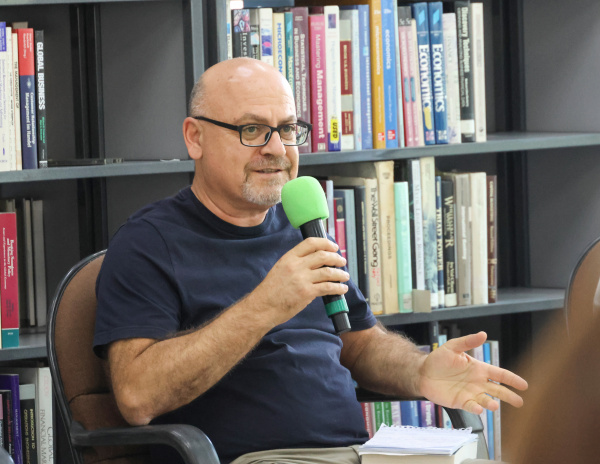
According to the authors, the educator must establish purpose and motivation. They suggest allocating time in formal educational institutions for educators to discuss with students why they study certain subjects.
The authors recommend that the ideas presented in the book be considered within formal, informal (referring to various forms of self-education), or non-formal (referring to education organized in civil and non-governmental sectors) educational contexts.
Misha Tadevosyan, the book’s reviewer, highlighted the innovative nature of the research by demonstrating the connection between its conclusions and contemporary pedagogical theories. He emphasized that the book provides an opportunity to understand the specifics of organizing the learning process from the learner’s perspective—a viewpoint rarely addressed in Armenian educational research.
The presentation of "How People Learn: Learning Experiences", YSU Library and the Eurasia Cooperation Foundation announce the beginning of joint discussions. During the academic year, YSU Library will present and discuss books recently and previously published by the ECF, covering relevant topics such as education, culture, war and peace, critical thinking, civil society, and more. This platform will provide YSU lecturers, students, and the general public with an opportunity to exchange ideas, engage in debates, and receive alternative education.
